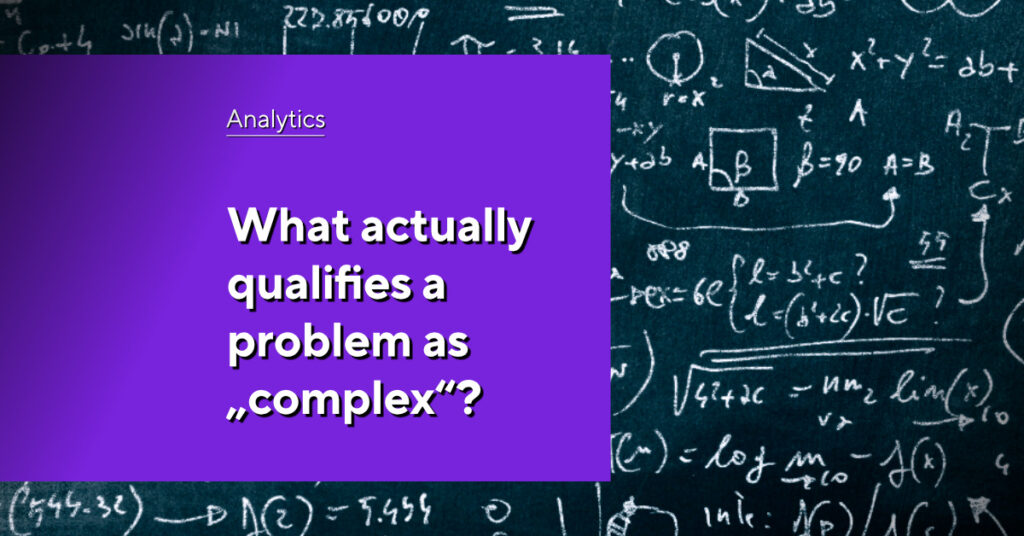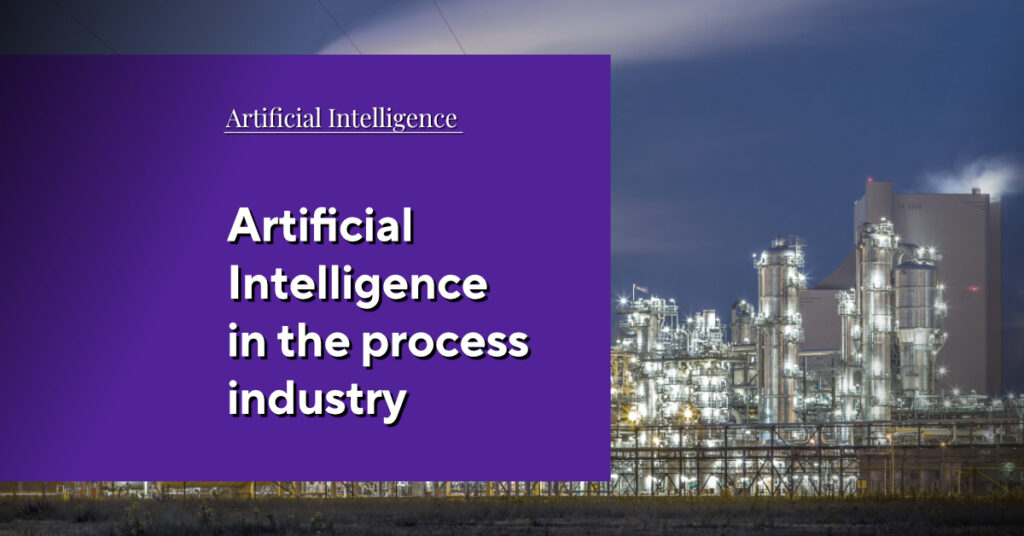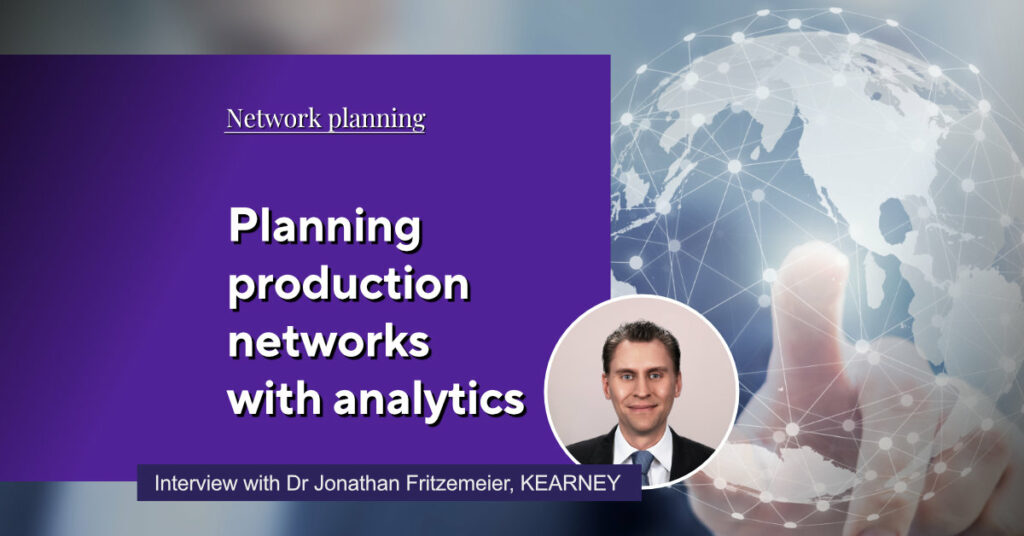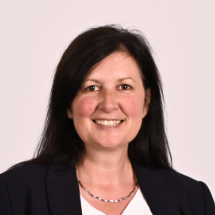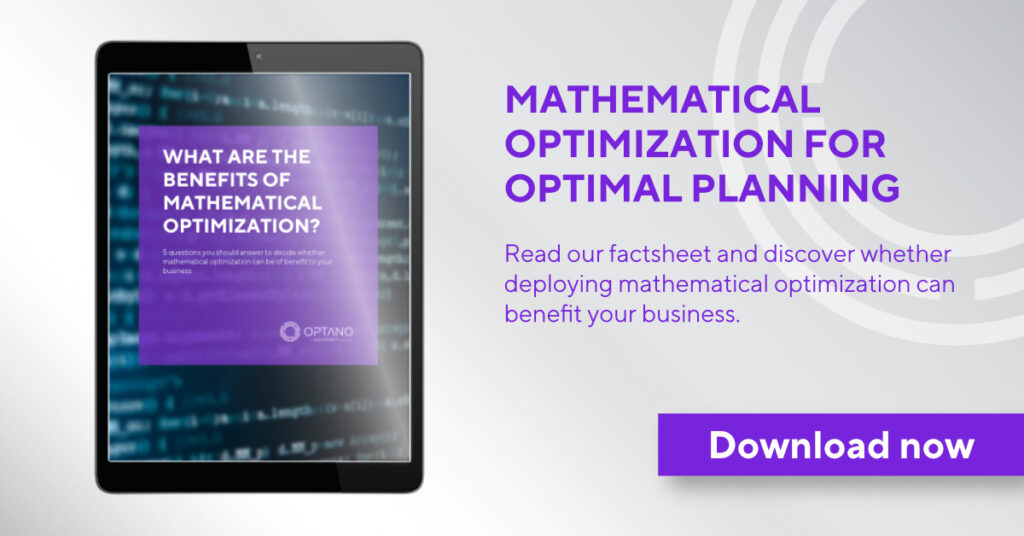Better decisions in
the energy transition
Energy is one of the most valuable resources an economy has. Without energy, industry cannot function, manufacturing would grind to a standstill, vital products would not get where they are needed. Simply put, without energy, the economy would collapse.
Take Germany for example: As the world’s fourth largest economy it relies heavily on its manufacturing industry and consumes huge amounts of energy to keep this economy running. Approx. 500 TwH of electricity are consumed every year. It is no wonder that the steep increase in energy prices has hit the country’s industrial sector hard.
By now, energy suppliers and consumers (i.e. manufacturing industries) are fully aware that switching to renewable energy in the long-term is no longer a question of if, but when – and how. Even so, transitioning to renewable energy sources gives rise to a high level of uncertainty among all market players, as well as to transformed market conditions. However, the energy transition offers a great many opportunities as well.
Dario Hashemi recently joined OPTANO as an Analytics Consultant. He talked to our Business Development Manager, Denise Lelle, about how energy suppliers and consumers can take advantage of the opportunities that the energy transition offers and explains how optimization software can support them in their decision-making.
Hello Dario. The new laws on climate change have compelled the energy sector and manufacturing industries to act. But they have been plagued by one crisis after another in the last few years: Covid, climate disasters, the war in Ukraine and the energy crisis… How can they manage the energy transition in light of these events? And how can both the energy sector and manufacturing industry avoid the pitfalls and even benefit from the transition?

Well, it is certainly true that the crises you mentioned and the climate targets have led to major upheaval in the energy sector. However, the energy sector is recovering from all of these “shocks” and many suppliers have realized that there is also a lot to be gained from the energy crisis.
Feeding renewable energy into the networks has a considerable impact on the energy prices which are as volatile as the weather itself (laughs). While these price fluctuations have created a lot of risk and uncertainty, market players also have the opportunity to benefit from them, as long as they position themselves in the market correctly. So, they profit from large price spreads; for example, by taking advantage of low prices when renewable energy is being fed into the network, and high prices during the lulls (when integration into the network is low). However, if you want to benefit from the prices in short-term energy trading, you have to be agile and flexible.
The chances are there for the taking, but you have to be flexible to benefit from them in short-term energy trading
How can the energy sector and the manufacturing industry respond flexibly in short-term energy trading? Can you cite some examples?

First of all, let me explain what is meant by “short-term” energy trading. Energy can be traded (i.e. bought/sold) in different markets. These can be distinguished from one another in the way they are structured. The spot market, for instance, is based on day-ahead trading with hourly products. That means, trade today, supply tomorrow. Intra-day markets are different. Here you can trade right up to a couple of minutes before the energy is supplied. This is particularly relevant when it comes to generating electricity. For instance, if the wind parks in the Paderborn area generate too much electricity in a brief storm, the price for this electricity can still be traded just a few seconds before the storm occurred.
But going back to your question, Denise. These short-term and continuous markets are becoming more and more significant. The electricity markets are like the stock exchange and supply and demand determine the prices. So, if power from the Paderborn wind parks is fed into the network, this lowers the price in the market.
Basically, energy suppliers in the market have one target in mind: optimal yield. But how can they achieve this? Very complex decisions have to be made here: In which market should they sell, when should they sell and how much? How much energy can they store? Also: How much power should they store and when?
In my opinion, energy suppliers need an agile process in combination with flexible assets like pump storage plants, batteries, heat accumulators, etc. to make such decisions. In other words, if I have plants which I can ramp up and shut down as flexibly as I like, it is much easier for me to position myself well on the market.
And what about the consumers? How can they reduce their energy costs?

While energy suppliers want to sell their energy at the best – or should I say – highest price possible, the consumers’ objective is the opposite. They want to purchase energy at the lowest price possible. So they have to decide when to buy, what to buy, and they need to know what market is right for them.
In my view, the consumers, i.e. manufacturing industries, have to rethink their objective. They should now be looking at how to manage energy instead of how to purchase it. They need to ask themselves how much renewable energy they are able to use and whether it is worth investing in power storage systems? To what extent can the company make money from energy? How can energy consumption and costs be reduced?
At the end of the day, it all comes back down to one thing: whether you provide or consume the energy, it is now time to readapt. Flexibility is money!
Mathematical optimization unleashes unlimited opportunities and can be deployed in any sector
There seem to be a lot of complex decisions that energy providers and consumers have to make. Have you got any good advice for companies that have to make these decisions?

As I mentioned earlier on, energy suppliers and consumers need to have agile, intelligent processes in place which can support suppliers in their trading decisions. They are also essential for the consumers so that they can adapt their energy consumption to the prices in the market, or rather to the availability of energy in order to save costs. One solution would be to adjust production processes. This could be by shifting production to off-peak hours when energy consumption is not as expensive.
Another point is transparency. Energy suppliers and consumers have a wealth of data at their disposal. As a supplier, this may be the sensor data from wind turbines or photovoltaic plants or data on storage tank levels. As a consumer, it can be the data stored on machines. However, businesses do not always know how to leverage the data to their advantage. This is why good data management is essential. Businesses gain a much better overview of how their processes and assets are performing by integrating all of the relevant data into an efficient system, together with external data on the current market situation and even the weather. However, all of this data then needs to be analyzed and calculated. And this is where optimization technology, which OPTANO deploys, comes into play…
How exactly can optimization technology help companies make decisions in regard to the energy transition?

Companies can map their own processes, structures and problems in an optimization model. This enables them to derive sound recommendations on which action they should take and helps them make optimal decisions. These can be operational decisions such as when to manufacture and in which quantities, to strategic isues, for example, where to locate electricity storage systems. Here, all of the individual framework conditions as well as constraints, variables and objectives have to be taken into account.
As you can imagine, this is highly complex. Therefore, it is useful if you can build on an existing system. We use our OPTANO platform to do this. The platform applies Predictive Analytics, a ML technique, in order to to make predictions about time series/data trends in the energy sector. It then deploys mathematical optimization, a Prescriptive Analytics method, to make specific recommendations about the best measures to take to achieve strategic or operational goals.
The platform also allows you to create what-if scenarios in which you can analyze and compare all the various options. In this way you can see the impact that a certain decision might have: Would it be worthwhile for a wind farm operator to invest in new storge facilities? If so, what kind of storage? Battery, thermal storage, hydroelectrolysis and storage?And to what extent? Or consider the following scenarios for a manufacturer: What would happen if certain machines were only deployed for specific processes? Can I make better use of intermediate storage and other flexibility options? Would it make sense to shift production processes to off-peak hours?
Mathematical optimization unleashes unlimited opportunities and can be deployed in any sector. And the important thing is, you obtain the results you need quickly and easily in order to make good decisions.
Optimization technology helps companies achieve the flexibility they need and to use it to their advantage
It sounds like the ideal tool to help with energy issues. Thank you for explaining this to me. I have one last question: You talked about scenarios just now. What future scenarios should energy suppliers and consumers be preparing for?

Energy is going to be an important decision-making factor in the future – in all sectors. However, the majority of companies do not have employees with the necessary skills to deal with energy issues and advise or make the right decisions on energy consumption, power trading, etc. In my opinion, this expertise needs to be expanded but companies also need tools to help them address complex and short-term challenges. And they will need optimization technology to help them make the best decisions when it comes to matters such as investment planning, where to position themselves in the markets, how to ensure network stability, to name but a few.
Both energy suppliers and consumers can benefit immensely from optimization technology because it helps them to make the best possible decisions – based on a wide range of data and constraints – on investment planning, their market positioning, ensuring grid stability, and so on. Optimization technology enables companies to achieve the flexibility they need and to use it to their advantage. It offers a great deal of potential for new business models and helps to maximize profit. As I already mentioned, the chances are there for the taking as long as companies are willing to be flexible.
Thank you for these insights into the energy markets, Dario!
How can we help you?
You are also welcome to use our contact form. We will then get back to you as soon as possible!
We look forward to talking to you!
More interesting articles


